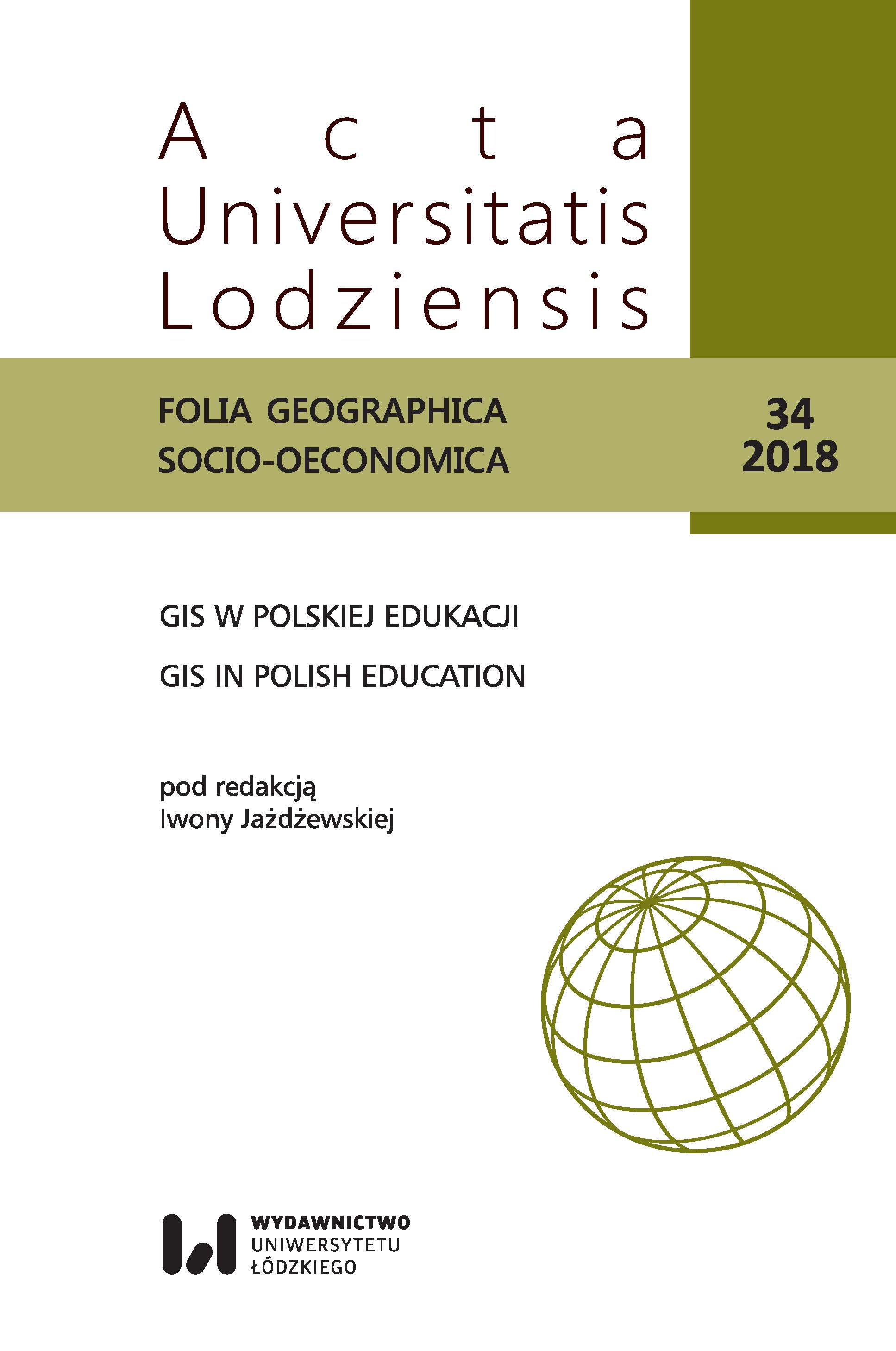Does GIS increase position of geographical disciplines? Importance of GIS and GIScience for geography
DOI:
https://doi.org/10.18778/1508-1117.34.01Keywords:
ICT, GIS, geography, digital turn, geographical scientific discourseAbstract
Geographers perceive information and communication technologies (ICT), including GIS software, as an element of inevitable transformations in geography. Some consider them to be ancillary to geography, some also note a digital turn that renews interest and links with areas such as computational social sciences and data-driven geography to gain a deeper insight into quantitative research, especially multi-resolution and multi-scale, on a time scale. Recently, the diversity of digital devices, platforms, applications and services is an inherent, normal and expected element of everyday life, and digital technologies are also a media standard for generating and analyzing knowledge in qualitative research. Progress, commercialization and popularization of geospatial technologies contribute to the development of spatial ontology and spatial epistemology. Semantic analysis of articles published in the most important geographical scientific journals (2014–2018) proves that interdisciplinary, methodological or applied geography approaches are most active in geographical scientific discourse.
References
Ash J., Kitchin R., Leszczynski A., 2018, Digital turn, digital geographies?, „Progress in Human Geography”, 42 (1): 25–43.
Google Scholar
Goodchild M.F., 2018, Geography and GISCIENCE, [Keynote lecture], http://igu2018.ulaval.ca
Google Scholar
Holt-Jensen A., 2018, Geography: history and concepts, Fifth Edition, SAGE Pub., Thousand Oaks, California.
Google Scholar
Kitchin R., 2014, The data revolution: big data, open data, data infrastructures and their consequences, SAGE Publications, Los Angeles, California.
Google Scholar
Lazer D., Pentland A., Adamic L., Aral S., Barabasi A.-L., Brewer D., Christakis N., Contractor N., Fowler J., Gutmann M., Jebara T., King G., Macy M., Roy D., Van Alstyne M., 2009, SOCIAL SCIENCE: Computational Social Science, „Science”, 323 (5915): 721–723.
Google Scholar
McDowell L., 2008, Understanding diversity: the problem of/for theory, [w:] Theory and methods: critical essays in human geography, Contemporary foundations of space and place, Ashgate, Burlington, Vermont: 296–309.
Google Scholar
Miller H.J., Goodchild M.F., 2015, Data-driven geography, „GeoJournal”, 80 (4): 449–461.
Google Scholar
Onsrud H., Kuhn W., 2016, ADVANCING GEOGRAPHIC INFORMATION SCIENCE: the past and next twenty years, S. l.: GSDI Association Press.
Google Scholar
Rogers R., 2015, Digital methods, The MIT Press, Cambridge, Massachusetts.
Google Scholar
Rosenberg M., 2017, Geography Journals. Important Geographical Journals, https://www.thoughtco.com/about-geography-journals-1435600 (dostęp: 7.04.2018).
Google Scholar
Sui D., Morrill R., 2004, Computers and Geography: From Automated Geography to Digital Earth, [w:] Brunn S.D., Cutter S.L., Harrington J.W. (red.), Geography and Technology, Dordrecht: Springer Netherlands: 81–108; [online] http://link.springer.com/10.1007/978-1-4020-2353-8_5 (dostęp: 4.09.2018).
Google Scholar
Unwin P.T.H., 2017, Reclaiming information and communication technologies for development, First edition, Oxford University Press, Oxford–New York, NY.
Google Scholar
Werner P., 2013, Kreatorzy, gestorzy i internauci – od baz danych przestrzennych do map numerycznych i wirtualnych globusów, Wizualne Bazy Danych, 36 (2): 239–250.
Google Scholar
Yuan M., 2015, Frontiers of GIScience: Evolution, State-of-Art, and Future Pathways, https://www.researchgate.net/publication/269112940_Frontiers_of_GIScience_Evolution_State-of-Art_and_Future_Pathways (dostęp: 3.09.2018).
Google Scholar
Rozporządzenie Ministra Nauki i Szkolnictwa Wyższego z dnia 20 września 2018 roku w sprawie dziedzin nauki i dyscyplin naukowych oraz dyscyplin artystycznych (Dz.U., 2018, poz. 1818).
Google Scholar
Downloads
Published
How to Cite
Issue
Section
License

This work is licensed under a Creative Commons Attribution-NonCommercial-NoDerivatives 4.0 International License.








